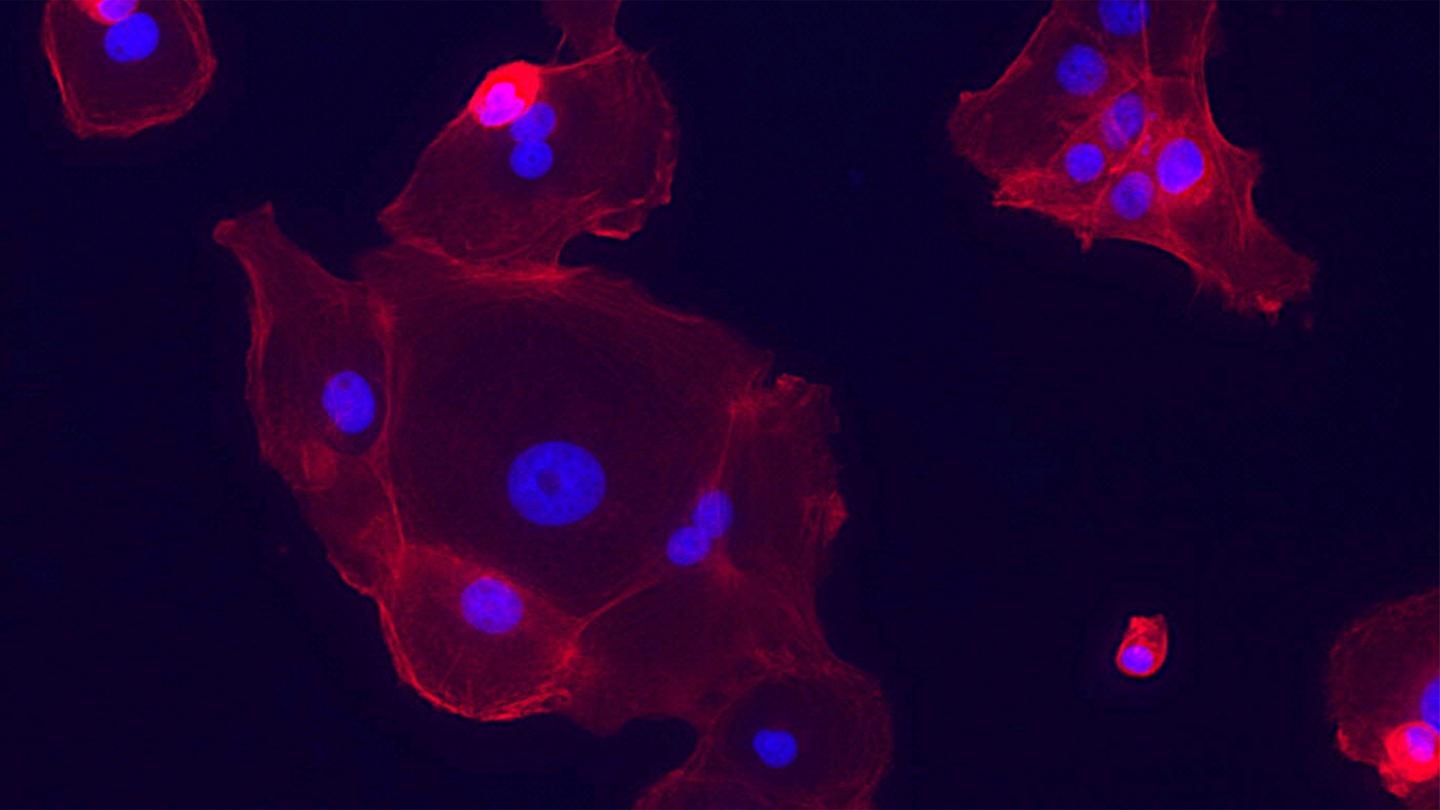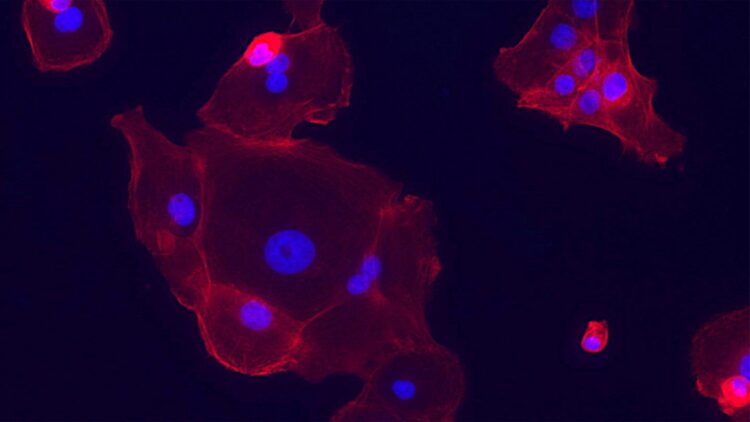
Credit: Sordella lab/CSHL, 2021
When a doctor gives a patient antibiotics for a bacterial infection, they usually require them to finish the entire treatment, even when symptoms go away. This is to ensure the drugs kill off any remaining bacteria. Cold Spring Harbor Laboratory (CSHL) Visiting Scientist Raffaella Sordella investigated a similar problem that occurs in some lung cancers.
Approximately 15% of non-small cell lung cancers have a mutation in a growth receptor called EGFR, causing tumor cells to grow uncontrollably. Researchers developed an effective drug that inhibits EGFR and kills cancer cells, but the tumor grows back later. Sordella wanted to understand the molecular mechanisms behind this relapse and how to prevent it.
Sordella and her team discovered that a small percentage of drug-resistant cancer cells were already present before treatment. Instead of relying on EGFR, these cells are dependent on another gene (AXL) for survival. Furthermore, they observed that the cells could transition between these drug-sensitive and drug-resistant “states.” When patients finish EGFR treatment, random modifications constantly occur in the remaining cells, causing both types of cells to grow back.
Sordella and her team worked with clinicians at Northwell Health and former CSHL Professor Gregory Hannon, now at the Cancer Research UK Cambridge Institute. Hannon’s research focuses on microRNA, a molecule that regulates cells by managing transcribed (copied) genes. Sordella explains:
“The genome is like a library. So when you have to do a recipe to bake something, you go there, you transcribe your recipe, you take it out from the library, you go in the kitchen. What these microRNAs do, they intercept all the recipes that are getting out from your library. And then, they decide whether this is a recipe that the cell should care about or not. So they are what they call ‘gatekeepers’ of a cell state.”
The researchers discovered that a certain microRNA called miR335 determines the “state” of the cancer cell. If the cancer cell loses miR335, a cascade of events is triggered that allows cells to use the alternative AXL pathway; the cells are not killed by drugs that target EGFR. These drug-resistant cells survive and eventually, the tumor grows back.
Understanding how resistance arises in lung cancer is key to figuring out how to eliminate a tumor. Sordella hopes that these findings could help develop treatments to wipe out both AXL- and EGFR-dependent cells from the start.
###
Media Contact
Sara Roncero-Menendez
[email protected]
Original Source
https:/
Related Journal Article
http://dx.





